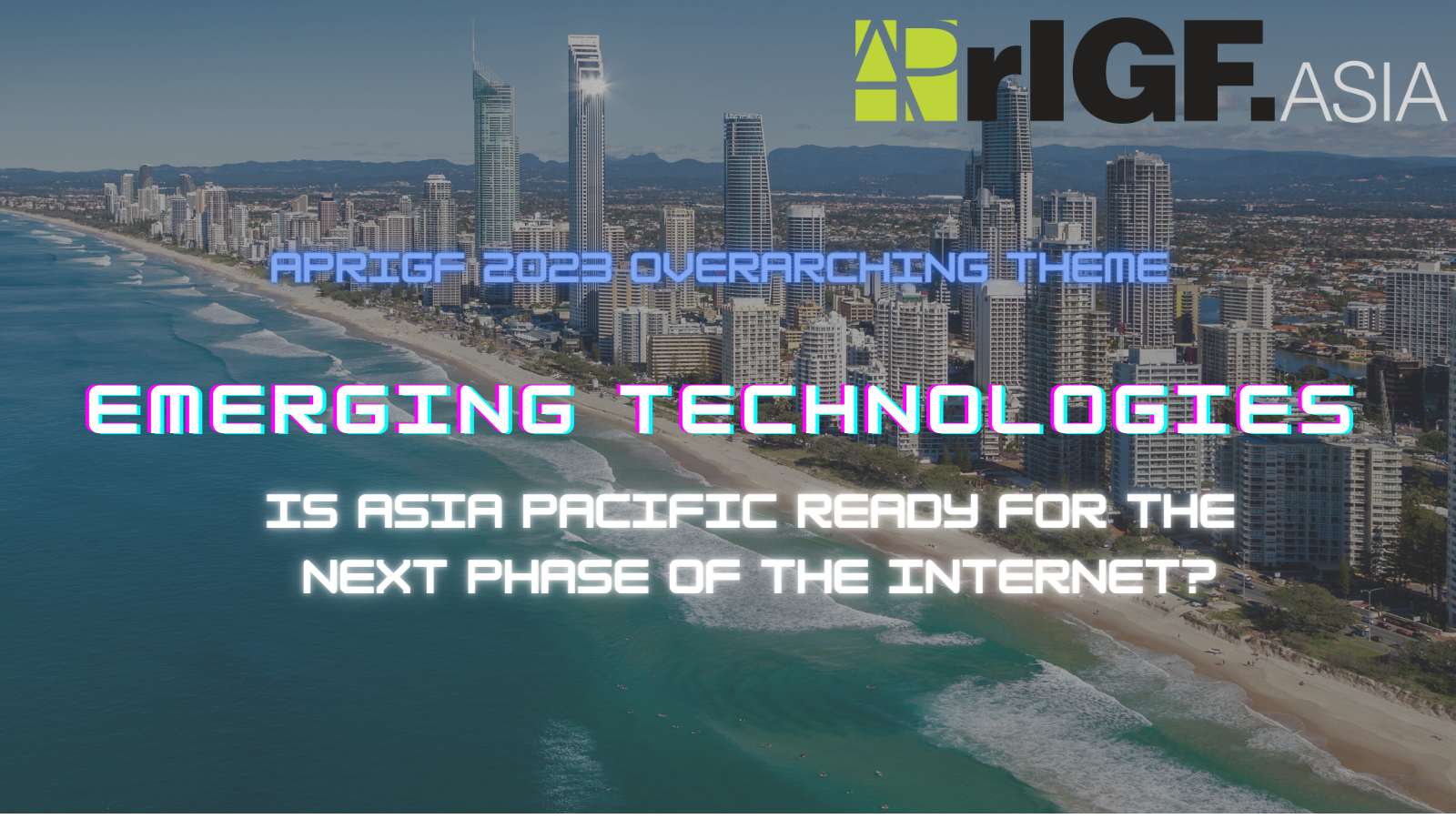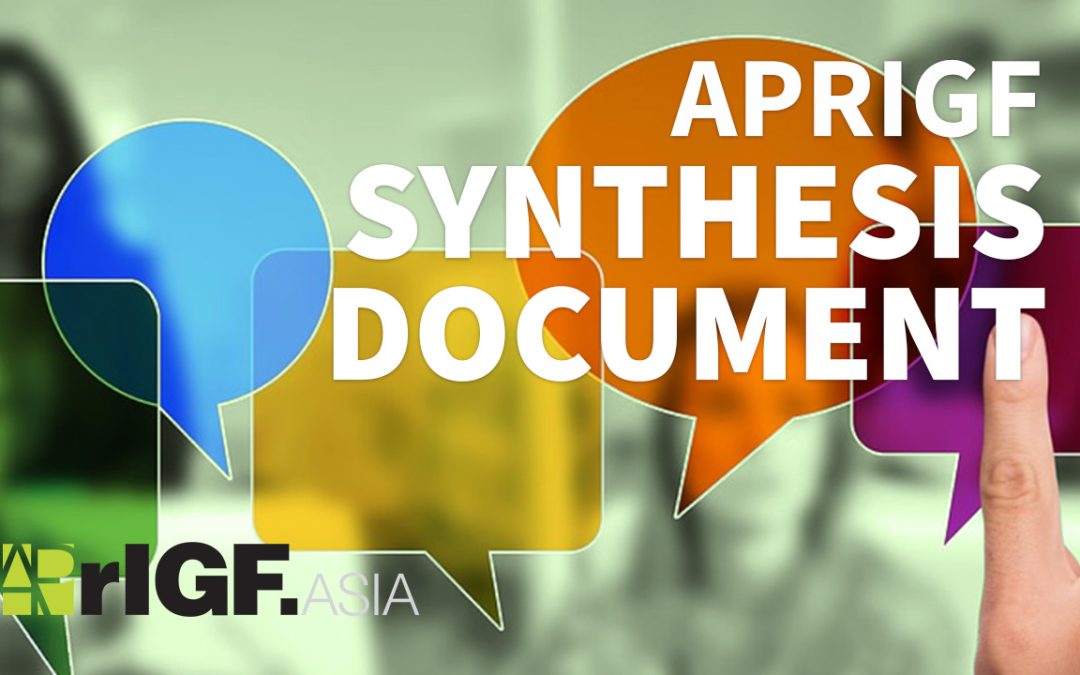Over the past few years, there has been a rapid increase in the adoption and development of emerging technologies such as artificial intelligence, augmented and virtual reality, Internet of Things, robotics, big data and 5G in the Asia Pacific region. More recently, ChatGPT and other AI applications have revolutionised chatbots, search engines, image/video generators among others. These technologies could have a significant impact on the social, economic and environmental future of the region, particularly in the context of uneven digitalisation and millions still unconnected. What are the policy & regulatory frameworks and market approaches needed to ensure that these technologies are inclusive and rights-respecting while enabling innovation and growth? Would these technologies widen or shrink the digital divide? What are some of the legal and technical safeguards that must be put in place to avoid harm to our communities? What are the current gaps in our knowledge, infrastructure and policies that must be overcome? What should the next phase of the Internet look like in the Asia Pacific?
Thematic Tracks
Access & Inclusion
The principle of inclusivity advocates that no one is disadvantaged on the basis of their background, location, gender, disability, religion, caste, class or any other factor. It also ensures that emerging technologies like AI, 5G and blockchain provide an enabling platform for everyone to participate, raise their voices and partake in the benefits. Meaningful access is still a big challenge in the region with millions still unconnected, especially marginalised communities. There is a need for multi-stakeholder dialogue with focus on providing infrastructure and access to all, in order to enable the use of these emerging technologies for socioeconomic development across the board.
Are emerging technologies being adopted and developed in the Asia Pacific region inclusive or will they exacerbate the already uneven distribution of access and opportunities? Do emerging technologies address the pre-existing digital divide or widen it further? What do stakeholders need to do to promote fair and responsible use of these new technologies? Do these new technologies adversely affect human rights, and if so, how can policies and regulations address this? How do we ensure that these technologies remain affordable and accessible, with equitably spread benefits?
The APrIGF welcomes proposals to encourage a multi-disciplinary discussion on the key issues such as, but not limited to:
| Accessibility | Digital divide | Equitable access |
| Affordability | Digital policy & advocacy | Hate speech |
| Capacity building | Digital poverty | Internet infrastructure |
| Communication | Digital rights/Human rights | Local access initiatives |
| Connectivity | Digital sovereignty | Multilingual Internet |
| Digital economy | Diversity | Multistakeholder model |
| Digital education | Empowerment | Universal access |
| Digital equity | Equal opportunities | Online gender-based violence |
ChatGPT Explanation:

Sustainability
For many years, Internet governance discussions have been concerned with ensuring the sustainability of the Internet and other digital technologies, by assessing their social, economic and environmental impact. Emerging technologies can cause further disruptions to this ecosystem, not only to the socio-economic and political fabric of the community but also to our physical environment. They could have considerable impact on the ongoing climate crisis, and affect local communities that are at the forefront of the fight for climate justice. Further, these new technologies have the potential to disrupt the regional economy, particularly the labour economy in many known and unforeseen ways. Finally, for these new technologies to be sustained in the long-term, they must be supported by reliable and resilient connectivity for all, including those currently unconnected and during crises, conflicts or disasters.
It is important to consider how we can promote sustainable development in the deployment and use of the Internet and emerging technologies, and ensure that they contribute to a more equitable future for all. It is also crucial to consider how these technologies could be used to aid in crisis response in a manner that is effective and reliable. In this context, a central question emerges: how can we ensure that emerging technologies contribute to our efforts in creating a sustainable Internet?
The APrIGF welcomes proposals to encourage a multi-disciplinary discussion on key issues such as, but not limited to:
| Future of work | Responsible innovation and technology | eHealth |
| Climate change and technology | Internet fragmentation | Risk mitigation and crises preparedness |
| ICT4Development & ICT4SDGs | Internet measurement | Measurement for success and sustainability |
| Green computing and technologies | Internet of Things | Socio-economic impact of the Internet |
| Laws, policies and regulation | Internet resilience | Sustainable Development Goals |
| E-waste management | Circular economies | Safety of human rights defenders |
ChatGPT Explanation:

Trust
The adoption of emerging technologies can only be meaningful if communities repose their trust in the processes (and key personnel) behind the former. Online safety, digital security, free and accurate flow of information, data privacy and cybersecurity in general all impact the formation and breaking of trust. Trust in Internet governance processes, at the global, regional and national levels, however, is no less important. Same for laws and policies meant for regulating the digital ecosystem at the national level.
How can stakeholders ensure strong and resilient trust in the Internet, its underlying infrastructure and in Internet governance processes? How can considerations of trust and safety be balanced with respect for privacy? How do we ensure transparency, accountability and fairness (that is, lack of bias) in emerging technologies? How do we foster trust in emerging technologies that many neither understand nor use?
The APrIGF welcomes proposals to encourage a multi-disciplinary discussion on key issues such as, but not limited to:
| Algorithms and AI | Cybersecurity | Freedom of expression |
| Big data | Data accuracy | Internet standards |
| Content moderation & censorship | Data flows | Multistakeholderism |
| Cyber bullying & harassment | Data governance | Privacy |
| Cyber crime | Digital cooperation | Surveillance |
| Cyber norms | Digital rights | Tech regulation |
| Bias | Ethics | Online safety |
| Cyber routing | Safety of human rights defenders | Misinformation & disinformation |
ChatGPT Explanation:

*On the use of ChatGPT:
The APrIGF has generated short explainers on the three tracks — “Access & Inclusion”, “Sustainability” and “Trust” — through ChatGPT, which accompany the explanations developed by the Program Committee (PC). The output generated by ChatGPT, which can be seen in the text images accompanying the PC’s articulation have been provided to enable reflections and discussion on the accuracy and effectiveness of such tools, ethical questions around when and how their use could be appropriate, and the broader implications of the integration of AI and other emerging technologies in various aspects of our lives. We hope it provides readers and the APrIGF community a starting point for reflection not only on the impacts of ChatGPT and other AI, but on the ways in which new technologies can shape the digital future of the region.
Please note that the ChatGPT excerpts are only provided as a point of reflection. Please consider the explanations developed by the PC as reference for the session proposals.
Should you have any queries, please contact the secretariat at [email protected].


